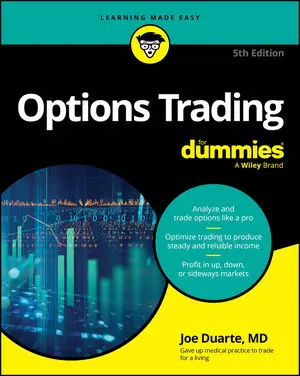Topics that must be covered in the disclosure statement include the risks inherent in trading futures contracts or options and the effect that leveraging your account can have on potential losses or gains. The statement also must include warnings about trading futures in foreign markets because those types of trades carry additional risks from fluctuations in currency exchange rates and differences in regulatory protection.
Commodities options and futures also can be risky because many of the factors that affect their prices are totally unpredictable, such as the weather, labor strikes, inflation, foreign exchange rates, and governmental policies. Because positions in futures and options are so highly leveraged, even a small price movement against your position can result in at least the loss of your entire premium payment and possibly even much greater liability for additional losses.
After you begin trading options and futures, you can’t close your account until all open positions are closed — if, that is, you’re trading through an account with a commodities exchange. This restriction doesn’t apply to options traded in a stock brokerage account. Any accruals on futures contracts are paid out daily. Any funds in your margin account that are beyond your required margin or account‐opening requirements can be withdrawn, but other such funds have to remain in the account until all your positions are closed. Any restrictions on the withdrawal of your funds are stated in the original disclosure document. Be sure that you understand those restrictions before committing your funds.
After opening your account, your broker usually mails or emails confirmation of all purchases and sales, a month‐end summary of transactions that shows any gains or losses, and an evaluation of your open positions and current account values. You need to be able to get information from your broker on a daily basis after you begin to trade.Brokers are required to segregate any money you deposit in your account from the brokerages’ own funds. The amount that is segregated either increases or decreases depending on the success of your trades. Even if the brokerage firm segregates your funds, you still may not be able to get all your money back if the brokerage firm becomes insolvent and is unable to cover all the obligations to its customers. In other words, the money you put into your brokerage account is not insured.
Whenever problems with your broker arise and you can’t resolve them without help, you have several dispute‐resolution options. You can contact the reparations program of the Commodity Futures Trading Commission (CFTC) and ask for an industry‐sponsored arbitration, or you can take your broker to court.
Before deciding how you want to proceed, you must consider the costs involved with each option, the length of time it may take to resolve the problem, and whether you want to contact an attorney. You can get more information about dispute‐resolution alternatives by contacting the CFTC on their website or by calling 202‐418‐5250.





